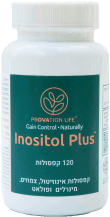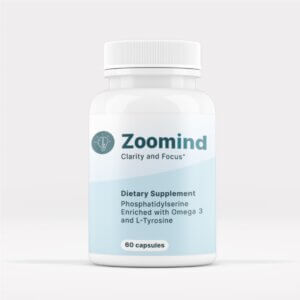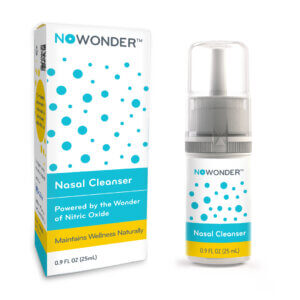
The root of PCOS is often an imbalance in hormone levels, particularly an excess of androgens like testosterone. These hormones interfere with the menstrual cycle and ovulation, making it harder for a person to conceive. They can also affect how the body processes insulin, leading to insulin resistance, which is closely linked to weight gain, increased blood sugar levels, and a higher risk of type 2 diabetes.
Inositol Plus is a supplement that combines ten active ingredients designed to tackle these core issues of PCOS. It addresses insulin resistance, hormonal imbalance, inflammation, and even mood challenges. For many, Inositol Plus offers a more complete and natural way to manage PCOS compared to the traditional symptom-by-symptom approach.
About PCOS
PCOS is complex. While its exact cause isn’t known, it’s believed to have a genetic component. Many women with PCOS have a family history of the condition. Diagnosis is typically made using the Rotterdam Criteria, which require the presence of two out of three features: irregular or absent ovulation, high androgen levels, and polycystic ovaries seen on ultrasound.
Symptoms can range from physical changes like hair growth and acne to deeper issues like infertility and metabolic problems. Over time, PCOS may increase the risk of heart disease, diabetes, and mental health issues like anxiety and depression.
What is PCOS?
PCOS occurs when the ovaries produce too much testosterone and other androgens. This excess disrupts the regular pattern of ovulation and leads to the formation of cysts, underdeveloped follicles that don’t release eggs. These hormonal shifts also contribute to problems with insulin, which regulates blood sugar.
This condition affects how the body looks and functions. While some women experience only mild symptoms, others face significant challenges with menstrual regularity, weight, skin health, and fertility.
What are the signs and symptoms of PCOS?
Common signs of PCOS include:
- Irregular or missed periods
- Excess facial or body hair (hirsutism)
- Oily skin and acne
- Hair thinning on the scalp
- Weight gain or difficulty losing weight
- Difficulty getting pregnant
- Mood swings or symptoms of anxiety and depression.
These symptoms are often triggered by elevated levels of male hormones and worsened by poor insulin control.
About treating PCOS

Lifestyle changes like weight loss, regular physical activity, and a low-glycemic diet can be powerful first steps. For many, these changes improve menstrual regularity and lower blood sugar levels. But for more targeted support, supplements like Inositol Plus can offer comprehensive hormonal support.
What FDA-approved treatments for PCOS are available?
The FDA has not approved a single medication specifically for PCOS, but several drugs are used to treat individual symptoms:
- Birth control pills help regulate periods and reduce acne and excess hair.
- Metformin improves insulin sensitivity and can restore ovulation.
- Spironolactone (Aldactone) reduces male hormone effects like hair growth and acne.
- Letrozole (Femara) is often used to trigger ovulation in those trying to conceive.
Each of these medications targets a piece of the PCOS puzzle but rarely addresses the whole picture.
How do current treatments help PCOS?
These treatments work by:
- Lowering androgen levels
- Improving insulin response
- Encouraging regular menstrual cycles
- Reducing visible symptoms like acne and unwanted hair
- Supporting fertility in women trying to conceive.
However, they often come with side effects and may not be suitable for long-term use.
Are there off-label treatments for PCOS? 
Yes. Inositol Plus is widely used off-label as a natural alternative to Metformin. It is well tolerated and has shown promise in:
- Restoring ovulation
- Improving egg quality
- Supporting better blood sugar control.
Inositol Plus takes this further with a unique blend of:
- Myo-inositol and D-chiro-inositol for hormone regulation
- Berberine and Chromium for insulin sensitivity
- CoQ10, Cinnamon bark, and Curcumin to reduce inflammation
- Folic acid to support fertility and fetal health.
This blend targets multiple symptoms at once without relying on prescription drugs.
What are the most common side effects of treatments for PCOS?
Prescription medications may cause:
- Nausea, diarrhea (Metformin)
- Breast tenderness, headaches (Birth control)
- Dizziness, changes in menstruation (Spironolactone).
Inositol Plus is generally well tolerated. Some women may notice mild digestive changes during the first few weeks. These typically resolve with consistent use and hydration.
Conclusion
Living with PCOS means learning to manage a wide array of symptoms that can impact everything from physical appearance to long-term health. The condition affects fertility, skin, weight, and emotional well-being. But with the right approach to treating PCOS, it can be managed effectively.
Traditional treatments like birth control and Metformin help to manage symptoms, but they often focus on just one or two aspects of the condition. Many women report frustration when these treatments don’t fully address their concerns or come with undesirable side effects.
That’s where Inositol Plus stands out. It offers a holistic, multi-targeted approach to PCOS care. By combining natural compounds that address insulin resistance, hormonal imbalances, inflammation, and ovulation, it helps restore balance from the inside out.
Inositol Plus isn’t just about easing symptoms. It’s about helping women with PCOS live healthier, more confident lives with fewer compromises. For many, it has meant the return of regular cycles, improved fertility, better energy, and a renewed sense of control.
Frequently asked questions about treating PCOS with Inositol
How do you know if Inositol is working?
A person may notice more regular periods, better energy, reduced acne, and improved mood. Some also see weight begin to stabilize. These signs often appear within 8 to 12 weeks.
What are the advantages of taking Inositol?
Inositol helps regulate insulin and hormone levels, which can lead to more regular ovulation, clearer skin, and improved fertility. It also supports mood balance and has very few side effects.
Does Inositol increase your sex drive?
Inositol may help improve sex drive indirectly. By reducing stress and hormonal imbalance, it can help restore libido over time.
How long does it take for Inositol to work?
Most people start seeing results in 6 to 12 weeks after beginning treating PCOS. Effects may appear sooner for some, especially for menstrual regularity and energy levels.
Can Inositol cause weight gain?
No. Treating PCOS with Inositol is more likely to support weight loss by improving insulin sensitivity. Some people even find it easier to maintain or lose weight while taking it.



